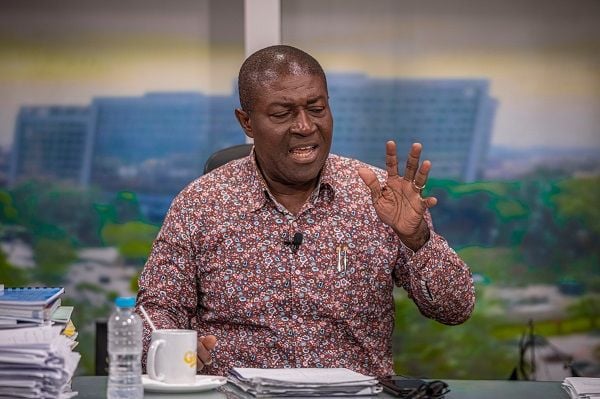The New Patriotic Party (NPP), a prominent political force in Ghana, finds itself navigating internal tensions following its defeat in the 2024 elections. A post-election thank-you tour, initially designed to revitalize the party’s base and foster unity, has inadvertently become a source of friction, prompting concerns from key figures within the party. Nana Akomea, the former Chief Executive of the State Transport Corporation and a prominent NPP member, has voiced his approval of Kennedy Ohene Agyapong’s decision to withdraw from the tour. Akomea argues that the tour has devolved into an unproductive competition, deviating from its intended purpose of promoting unity. He emphasizes the importance of party leaders presenting a united front to inspire and reassure the party’s supporters. The thank-you tour, a tradition dating back to 1992, should serve as a platform for reconciliation and collective reflection rather than a stage for internal rivalries.
Kennedy Agyapong’s withdrawal from the thank-you tour stems from serious concerns about his safety and the perceived hostility directed towards him and his supporters. He cites specific incidents, including the stabbing of one of his supporters by a party vigilante and a tense confrontation with Kwame Baffoe Abronye, the Bono Regional Chairman, as evidence of an unwelcoming environment. These incidents, according to Agyapong, signal a clear message that his presence on the tour is undesirable. He has expressed concern for the safety of his team, stating that he cannot adequately protect them in such a climate. His decision to withdraw, he explains, is driven by the need to prioritize their well-being and allow Vice President Dr. Bawumia to continue the campaign without further disruption.
The unfolding events within the NPP highlight the challenges the party faces in the aftermath of its electoral defeat. The thank-you tour, intended to be a healing process, has instead exposed underlying tensions and rivalries. The public disagreement between prominent party figures like Akomea and Agyapong underscores the difficulties in maintaining a cohesive front. Agyapong’s allegations of hostility and threats against him and his supporters paint a concerning picture of the internal dynamics within the party. These incidents raise questions about the safety and security of party members and the potential for further escalation of tensions.
The NPP’s leadership is confronted with the urgent task of addressing the internal strife that threatens to further destabilize the party. Reconciling competing factions and fostering a more inclusive environment is crucial for the party’s future prospects. The incident involving the stabbing of Agyapong’s supporter highlights the dangerous potential of unchecked vigilantism within the party. Addressing this issue and ensuring the safety and security of all party members is paramount. Failure to do so could further erode public trust and damage the party’s image.
The withdrawal of Kennedy Agyapong, a charismatic and influential figure within the NPP, has the potential to significantly impact the party’s dynamics. His absence from the thank-you tour could create a void and further exacerbate existing divisions. Agyapong’s decision to withdraw also raises questions about his future role within the party and the potential for further fragmentation. The NPP leadership must engage in open and honest dialogue with Agyapong and other concerned members to address their grievances and find common ground. Ignoring these concerns could lead to further alienation and weaken the party’s overall strength.
The NPP’s path forward requires addressing the issues that have come to the forefront during the thank-you tour. The party must prioritize rebuilding trust and fostering a more unified environment. This involves addressing the concerns raised by Kennedy Agyapong regarding his safety and the perceived hostility towards him and his supporters. A thorough investigation into the incidents he has cited is necessary to determine the facts and hold those responsible accountable. Additionally, the party must take concrete steps to curb vigilantism and ensure the safety and security of all its members. Promoting internal dialogue and fostering a culture of respect and inclusivity are crucial for healing the divisions and rebuilding a stronger, more unified party. The NPP’s ability to navigate these challenges will significantly impact its future prospects and its ability to effectively compete in the political arena.


